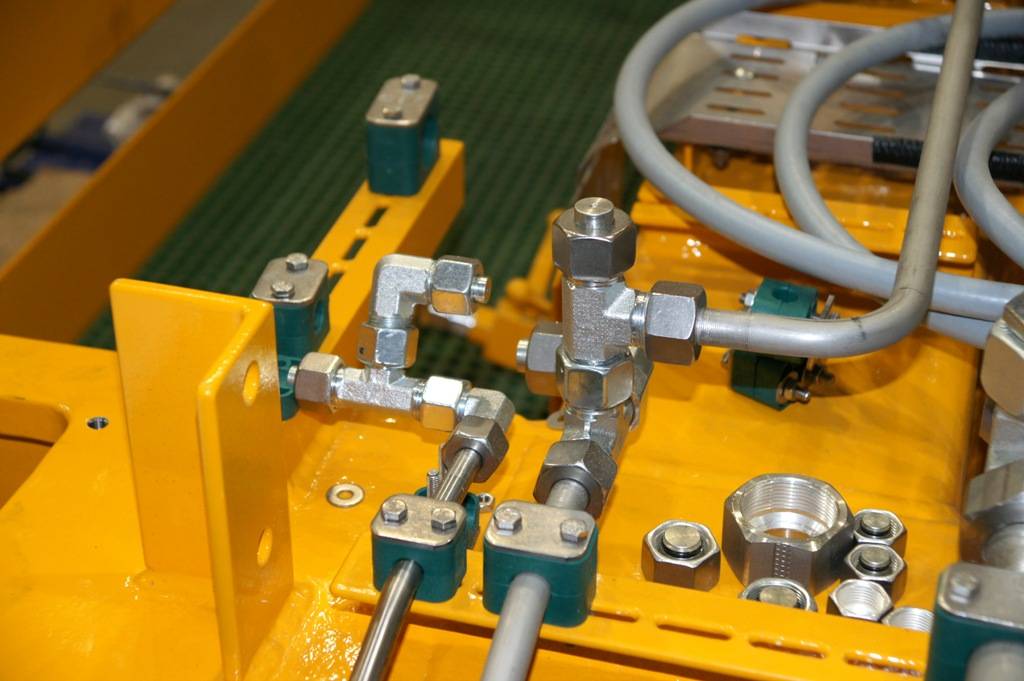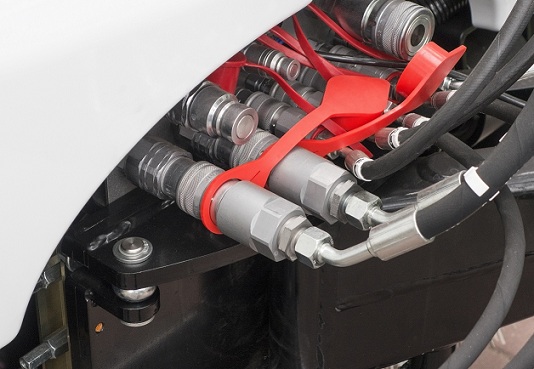Smooth operation of hydraulic drives is ensured by regular maintenance of oil’s performance characteristics within the limits, specified in the technical requirements of the oil and the equipment.
Performance characteristics of hydraulic fluid may be divided into two groups. The first group includes the lubricating and anti-friction properties of the oil. Oil’s ability to lubricate helps to prevent potential wear-out of drive and driven parts. The anti-friction properties of oil are able to modify or reduce to a minimum friction between moving and static parts.
The second group is more general and includes such characteristics as density, viscosity and other technical aspects of oil and lubricants.
As a rule, these characteristics have potential to degrade rapidly during operation. Viscosity is deemed to be one of the most important characteristics of oil. This is due to the fact that it is difficult to find its optimal value. Oil with a high viscosity increases the resistance of parts moving inside a hydraulic unit.
It is a fair assumption to say that the higher the viscosity of hydraulic fluid is, the slower the parts of a hydraulic system will move. This higher viscosity may result in equipment power loss and pressure reduction. Oil with a low viscosity may cause faults in drive regulation, reduce the efficiency coefficient and the pressure in the hydraulic drive system.
During scheduled maintenance of equipment, viscosity of oil is exposed to a wide spectrum of factors that result in:
- mechanical destruction of molecules of oil’s components when throttled;
- change of oil’s chemical composition during oxidation or thermal destruction; and
- light fraction evaporation.
In addition, mechanical particles, microdroplets of water and air bubbles that penetrate deeply into oil during its transportation and storage, also affect oil’s performance characteristics significantly.
To restore or replace?
Degradation of oil’s characteristics to the levels below the acceptable values is dangerous since it may cause failures in the operation of expensive equipment, the downtimes of which will result in great financial losses. Only through the proper and regular maintenance of hydraulic fluid, an operator can ensure the uninterrupted operation of a hydraulic drive system.
In practical terms, this problem may be solved in two of the following ways:
(1) The working fluid is replaced with a fresh product. In this case, it requires considerable cost to buy new oil and dispose of the used oil; or
(2) Hydraulic fluids are restored to a new-like condition and may be placed back into service again, precluding the need to dispose of the used oil and thereby saving money.
In practice, restoration of hydraulic fluids that degraded performance characteristics during operation is realized by a purification process. In each specific case, the choosing of the purification method depends on (1) the functions of hydraulic fluid, (2) nature of contaminants, (3) type of oil that needs purification, (4) its viscosity, and (5) its original degree of purity.
In today’s industry, performance characteristics of working fluids are restored with the help of filters. They are made of different materials that render it possible to reach a different degrees of purification based on the fluid and filter type. It should be noted that filtration is only one of the possible ways to achieve the desired purity of oil. Centrifuging, vacuum purification and electrical purification are among some of the alternative methods of purification.
GlobeCore has found a solution to the problem of hydraulic fluid purification. As it was stated earlier, it is not so easy to choose the optimal equipment for the restoration of hydraulic oils.
GlobeCore is one of the industry leaders in producing and supplying equipment for reclamation of hydraulic fluids, transformer oils, turbine oils and industrial oils. GlobeCore equipment is now being used in more than 70 countries around the world. GlobeCore always considers the needs of its clients and the benefits for its customers, and therefore, takes an individual approach to each of our customers, past, present and future.
If you are unsure of what type or model of processing equipment to choose, GlobeCore’s team will take and analyze samples of your oil and offer you the most optimal equipment that will meet you needs. If required, our specialists will visit your facility, commission your equipment and train your staff in how to operate and maintain your oil processing equipment.
GlobeCore always knows how to restore hydraulic fluids to the rated values thereby saving our customers money and time.


